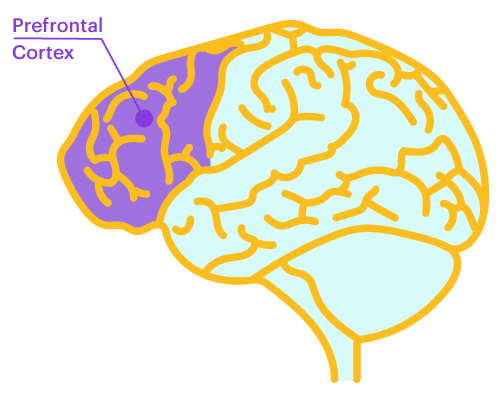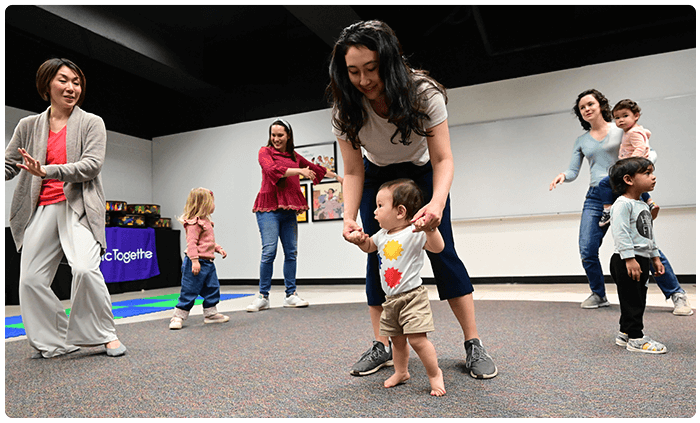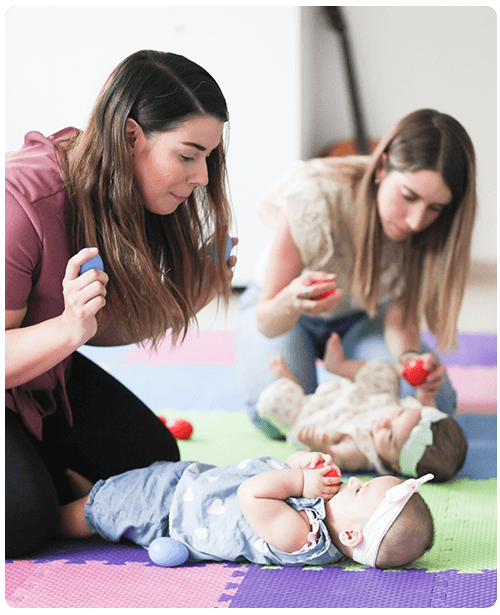How Does Music-making Support Executive Function?
An Interview with Music Together® Coauthor Dr. Lili M. Levinowitz
In your Music Together® class, you’re singing “Goin’ to Boston,” following along as your teacher leads you in different ways to move. They might sing, “let’s all jump around now. . .” or “let’s all spin around now…” Then, in the middle of a movement, your teacher calls out, “freeze!” All of the adults in the room freeze (to the best of their ability), and the children . . . Some keep right on moving, some notice the change and continue to move but move differently, and some actually follow the teacher and freeze.
This move/freeze activity allows the children to practice the executive function of inhibitory control: the skill of waiting/delaying response. Who knew that singing and dancing in music class could give your child the chance to practice something called executive function? The activities you learn in your Music Together class actually support various forms of early brain development, including executive function. But, what is executive function, really, and why is it important for your little one? Read on for some answers to those questions from Music Together® coauthor and Director of Research, Lili M. Levinowitz, Ph.D.
Question: What is executive function?

Answer: Executive function is a set of skills that has many components, including attention control, the ability to filter distractions; working memory, the ability to hold and work with information in the mind; cognitive flexibility, the ability to shift attention; and inhibitory control, waiting or delaying responses. These skills mainly involve circuits and systems in the prefrontal cortex, which is the area in the front of the brain.
Question: Why are these skills important?
Answer: Executive function skills are related to cognitive and social-emotional development. The skills mentioned above (e.g., inhibitory control, etc.) are crucial to success in school and in life. They can impact the child’s developing approaches to learning, which can be described as how children learn (such as through persistence, self-reliance, and curiosity). Executive function skills are also associated with goal-oriented motivation through sustained attention, such as reading a book. The brain networks for executive function are also related to the skill of self-regulation, which is the ability to inhibit inappropriate responses and impulses.
Question: How does music, in particular, support developing executive function?
Answer: Music offers many opportunities for exposure and practice of these skills. Song and movement activities challenge and support more than one executive function skill at a time, such as in the “Goin’ to Boston” activity, where children had the chance to practice inhibitory control when freezing and attention control while switching movements. More importantly, when you’re singing and dancing with your child, you provide the necessary role model to help the children practice and support the development of these executive function skills. And, of course, music is fun!

Question: Can you give us another example of a music activity that supports executive function?
Answer: Consider the skill of cognitive flexibility. When you sing a song all the way through in class, and then begin another song, the child’s attention shifts to the new song. That shift can also happen when the words or activity change within a song itself.
Take, for example, “Can You Do This?” from this semester’s Fiddle Song Collection. As the teacher sings the lyrics and demonstrates different actions, the child’s attention must shift from one activity to the next: “Can you do this... I can clap my hands... and stomp my feet... I can wave hello... and jump real high...”
The activity draws in the child’s attention—and then requires their attention to shift to the next, new activity, giving them practice in the skill of cognitive flexibility. (Interestingly, it is thought that, in a child whose executive function skills are less developed, the child may perceive the activity shift as a different song altogether.)
Question: So, singing songs each week can help my child learn and develop executive function skills?

Answer: Yes and no. These are lifelong skills that develop over time, from infancy to adulthood. (I am still practicing these skills today.) However, a strong foundation in early childhood is quite important. Honing executive function early on takes repetition, practice, and a strong role model (that’s you!). The more opportunity the child has to practice, the stronger those skills will become. This exposure happens in your Music Together class, but what happens at home is even more important.
If you want your children to practice their executive function skills through music, they need you, the important grownups in their lives, to set an example throughout the week. Even if you think you are not musical, you can still use music to support your child’s executive function skills by singing and making music with them as much as you can. They’ll love it—and it will help them continue to hone a set of skills that will support their growth throughout their lives.
Dr. Levinowitz has been instrumental in developing Music Together’s research-based approach to teaching music in early childhood, and is a renowned researcher in how music impacts early development. She says there is much more to be learned about executive function skills, and researchers are still in discovery mode. We do know these skills are important to all of us; Dr. Levinowitz wants us to know, however, that we shouldn’t enroll our children in Music Together only to support brain development. “Music is in itself, a way of knowing, and every child deserves to ‘know’ in any way possible.” Think of taking a Music Together class with the idea of “music for music’s sake.” And, enjoy practicing these valuable skills in the process!
If you have a question about your child’s music development, please email it to news@musictogether.com.
Selected Research
Chen, J., Scheller, M., Wu, C., Hu B., Peng, R., Liu, C., Liu S., Zhu, L., & Jie Chen, J. (2022). The relationship between early musical training and executive functions: Validation of effects of the sensitive period. Psychology of Music, 50(1), 86–99. DOI: 10.1177/0305735620978690
Ilari, B., Helfter, S., Huynh, T., Bowmer, A., Mason, K., Knight, J., & Welch, G. (2021). Musical activities, prosocial behaviors, and executive function skills of kindergarten children. Music & Science, 4. https://doi.org/10.1177/20592043211054829
Veldman, S. L., Hammersley, M. L., Howard, S. J., Stanley, R. M., Okely, A. D., & Jones, R. A. (2023). Associations of gross motor skills with self-regulation and executive function in preschool-aged children. Australasian Journal of Early Childhood, 48(3), 234-246. https://doi.org/10.1177/18369391231175524



